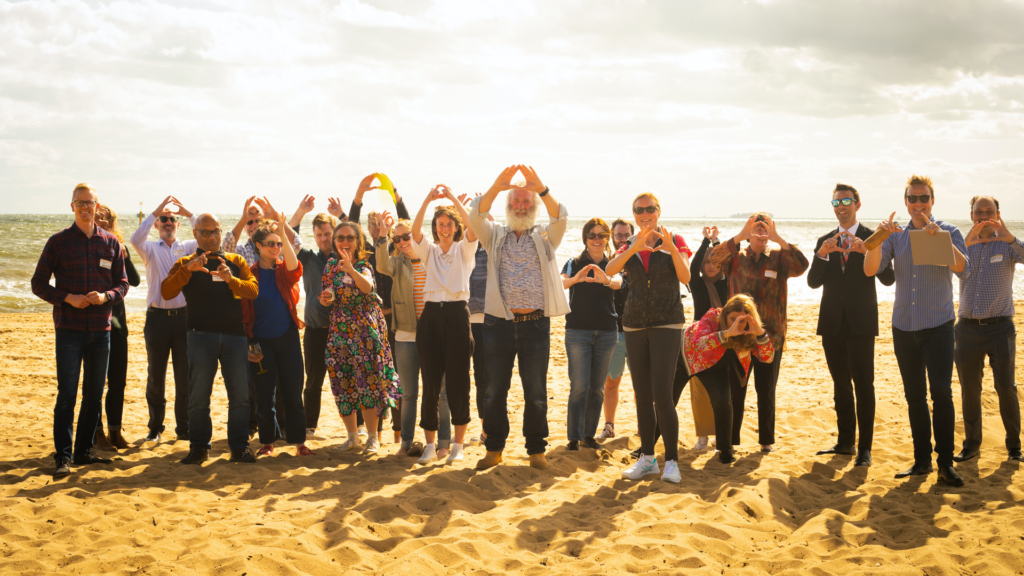Authors: Chamila Weerathunghe Arachchige and Meghan Henderson
Participation of wider stakeholders, including grass root groups and social innovations emerging at the grassroots levels, are recognized as key determinants of the advancement of sustainability transitions (Backhaus, 2010; Lindberg et al., 2019). Grassroots may include residents, small and medium-sized enterprises, youth groups, and other local organizations that represent both environmental and non-environmental causes (Feola & Nunes, 2014; Grandadam et al., 2021; Hargreaves et al., 2013). However, most of the time, grass root innovations at niche levels encounter a myriad of barriers. Government support is critical to creating an enabling environment for these innovations to mature, stabilize, and diffuse beyond niche levels (Seyfang & Haxeltine, 2012; Wolfram, 2018).

In Chamila Weerathunghe Arachchige’s PhD research project which investigates the policies that create enabling conditions for engaging small and medium-sized enterprises (SMEs) in sustainability transitions, she had the opportunity to study a grassroots project called “Village Zero” in Sandringham, in metropolitan Melbourne. Sandringham is a coastal area located in the Bayside City Council local government area, about 20km from the Melbourne Central Business District (CBD).
The “Village Zero” project is an intersection of ideas from small businesses, the Traders’ Association in Sandringham, and the local community members and is supported by the local council. The recent election of Zoe Daniel and her platform of climate action has been a significant driver. Although zero emissions and waste management are obvious components of the “Village Zero” mandate, environmental sustainability is also implemented through social sustainability as well as through distributive economics which provide prosperity to local communities.
“A lot of people are afraid of change. A lot of people keep doing things the same way that they’ve done forever. And change is scary. Hence there has to be that drive from the businesses where the businesses have input, real input as to how these changes can be implemented.”
The President of the Sandringham Traders’ Association
“Village Zero came out of people talking to each other and all wanting to change to address the climate crisis but not being sure how. The President of the Traders was really interested, and it just seemed to snowball from there. There needs to be a behavioral change, the emissions in terms of energy and minimizing waste are just one portion of it, but it was really important to have a look at all of the different things that would help us be sustainable and to try and change that behavioral thinking” [A Councilor of the Bayside Council].
The Councilor further elaborated on their vision of making this change happen within each community, but she emphasized that change should reflect what the communities aspire to be. As such, a high level of community participation in the change and community ownership of the process is vital.
The President of the Sandringham Traders’ Association explains the inception of the “Village Zero” project and the way change should transpire within a small business community: “A lot of people are afraid of change. A lot of people keep doing things the same way that they’ve done forever. And change is scary. Hence there has to be that drive from the businesses where the businesses have input, real input as to how these changes can be implemented.”
The President of the Traders’ Association corroborated the Councilor’s vision of change and how success is achieved when it emerges from the ground up. However, key personnel associated with this initiative also underline the challenges that small businesses encounter during sustainability transitions. The financial capacity, time restraints, and lack of resources were all barriers that inhibited the change towards sustainability within that community. These barriers informed how some of these challenges have been dealt with in Sandringham:
“What has happened in Sandringham is it’s all being driven by volunteers, and it’s been quite extraordinary what we’ve been able to do. But my role has been to serve as a conduit between government and business. Through the committee and through community groups taking a leading role, the Traders Association has an advocacy role as to what businesses and traders are looking for to bring about this change”.
Conceptualized during the challenging COVID-19 pandemic period, the Village Zero project recognises seven integrated areas, including: zero emissions and zero waste, as well as culture and art, water, green spaces, transport, and economics.
Village Zero launched their emission reduction and waste management strategies. However, as with many other grassroots innovations (see Feola & Nunes, 2014; Grandadam et al., 2021), their journey is not devoid of challenges. Project delivery groups are tested by both on and off-the-ground challenges which include a lack of manpower, financial resources, and time. Establishing trust among businesses and residents has become another hurdle, as many of them emphasized. A few volunteering experts on community energy and waste management share their concerns as follows:
“Building the trust is critical” [waste management consultant];
“Even then there’s suspicion because I talked with somebody who was doing this small energy saver program and a lot of people straight away are going, you mean I can get something for free? What is the catch? So there is suspicion quite often” [A Councillor of the Bayside Council].

Key personnel who devote their time pro bono to Village Zero also have numerous challenges. Undoubtedly committed to sustainability and community wellbeing, their inputs are constrained by time restrictions. Their availability for the project is mostly limited to after-hours which may overburden them and slacken the progression of the project toward its ambitious targets.
Regarding support from the government, different stakeholders have shared their views on the opportunities and scope that the state and local governments each have to support the project. In addition to ground-level challenges of different stakeholder groups, they call for innovations in government support. The business-as-usual support common to many government programs is not going to help ground up innovations lead to sustainability transitions (see Blundel et al., 2013; Diercks et al., 2019). Many of the interview participants underscored the importance of communication and channeling government support through local organizations.
Six months after its roll-out, the Village Zero project, a grassroots innovation that aspires to excel in environmental and social sustainability, has weathered some of its encountered challenges because of its commitment of its stewards. While Village Zero is fortunate to harness both local and federal level support, they argue that further access to support from the Victorian State government would help them to take their ambitious targets forward and facilitate the urban sustainability transformations envisioned in metropolitan Melbourne.
